Thoughts on why a higher prevalence rate of anxiety disorders is reported in women.
Prevalence rates of anxiety disorders are documented as being higher in women in National Statistics[1] As a therapist this was something that I remember being stated in my training as well. However, it seems that there is a lack of research into why this might be the case.
As a woman I came up with several reasons. Many women like myself have juggled or are still juggling work with bringing up children and some may also be doing work related studying at the same time. As we and our parents are living longer, many of us may be caring for the elderly as well. These responsibilities of being an adult woman can leave some of us spinning with anxieties as we spread ourselves ever thinner to meet our commitments and sometimes gradually do less for ourselves. Life becomes a never ending list that we can’t let go of for fear of failing in one of the roles.
If we add in hormones such as being premenopausal or menopausal and the symptoms that these can bring with them, we can see that this can lead to many anxious thoughts. These might include worries of aging, health, goal achievements and even in extreme the worry of impending death. Going through the menopause myself led to weight gain, nightmares and embarrassing hot flushes that steamed up my glasses. The latter was very difficult when I was delivering training at that time. I felt as though I was losing who I thought I was. My body was being unpredictable and my dreams were of when I died. For some women this time coincides with children leaving home and leads to a questioning of where they are in life and what purpose there is.
From a practical point it may be that women are more likely to seek professional help and are therefore documented in statistics. It may be linked to societal gender expectations where it is accepted that women can be more open about their feelings than men. In my experience as a therapist, the men that reach out for therapy often do so without seeing their doctor and are choosing to have private therapy because they fear having notes on their records of a mental health issue. Perhaps this is an element affecting why the figures show a prevalence towards women.
I have, over the last couple of years, found that my clients are about an even number of both women and men. I am in private practice as well as being an Anxiety UK Approved Therapist. Perhaps it is that gender roles are not so easily or necessary to define in our times. Or it could be that in general, society is talking about mental health and is more aware than before. As a therapist I hope it is the latter, and that no matter what gender we are, therapy becomes something like dental check-ups, an accepted part of staying healthy in a holistic way.
Michelle Mould
Anxiety UK Approved Therapist
- [1] Adult Psychiatric and morbidity survey 2014 – Published September 2016 –National Health Service https://digital.nhs.uk/data-and-information/publications/statistical/adult-psychiatric-morbidity-survey/adult-psychiatric-morbidity-survey-survey-of-mental-health-and-wellbeing-england-2014






